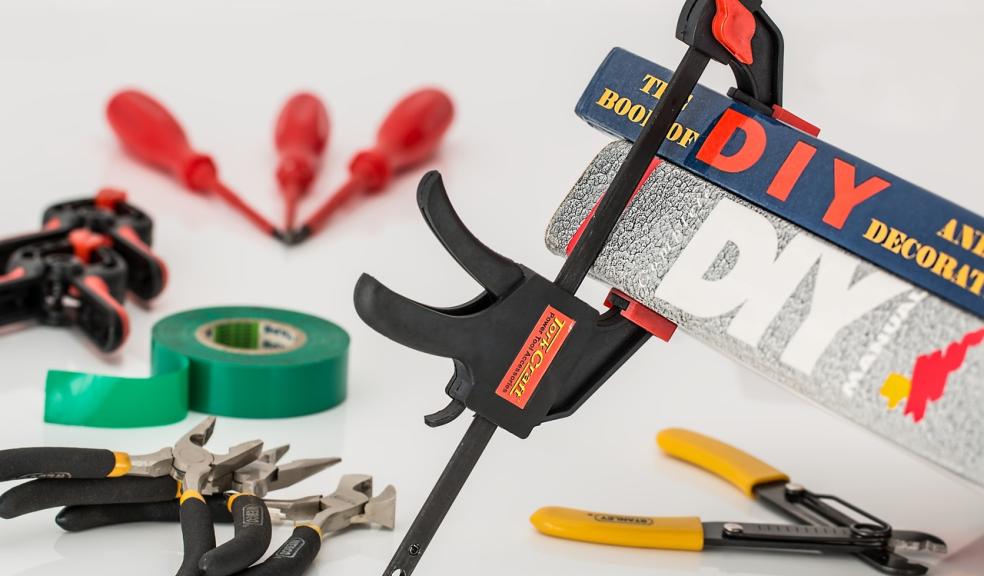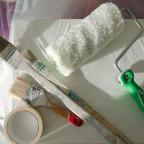
🛠️ 7 Common DIY Mistakes Unlikely to be Covered by Your Home Insurance
The home insurance experts at Forum Insurance have reviewed the top DIY jobs people tackle over the long weekend, highlighting where things often go wrong and why resulting damage is often excluded from standard home insurance policies.
|
Common DIY Mistakes |
Potential Cost to Fix Without Insurance Coverage |
Why An Insurer is Unlikely to Cash Out |
|
1. Drilling into pipes or wires |
Up to £6,600 |
May require full rewiring or pipe replacement. Claims are often denied if work is reckless. |
|
2. Doing your own plumbing or electrics. |
Up to £5,000 |
Unqualified work can cause damage. Insurers may void cover due to a lack of certification. |
|
3. Skipping prep before painting. |
Up to £3,500 |
Poor prep can cause peeling, mould, or blistering – which insurers see as preventable. |
|
4. Installing sheds or decking without securing them. |
Up to £3,000 |
Future storm damage from unsecured structures is unlikely to be covered unless selected specifically when insuring. |
|
5. Neglecting general home maintenance |
Up to £1,500 |
Claims can be rejected if damage stems from neglect (e.g. blocked gutters). |
|
6. Poorly secured wall fixtures (e.g. TVs, shelves) |
Up to £1,000 |
If fixtures fall, resulting damage may not be covered if they weren't properly installed. |
|
7. Ignoring installation guidelines for appliances |
Up to £700 |
Voids warranties and can lead to denied claims if damage is linked to incorrect setup. |
|
Total |
£19,800 |
|
A Mistake-by-Mistake Breakdown - And What to Do Instead
-
Accidentally Drilling Into Pipes or Wiring - Up to £6,600
If you're looking to hang artwork or shelving over the bank holiday weekend, be aware that you may accidentally hit a water pipe or electrical wiring. Repairs for burst pipes can cost up to £600, while electrical damage may require rewiring, costing up to £6,000. Insurers may refuse claims if the damage results from reckless or unqualified work.
Tip: Always check that your insurance policy covers accidental damage. If it is included, you can further protect yourself by using a cable and pipe detector before drilling into walls or floors to avoid hidden hazards.
-
Attempting Plumbing or Electrical Work Without Certification - Up to £5,000
If there are two trades you should never attempt yourself, it's plumbing and electrical work. Not many people are aware that tackling these tasks without proper qualifications can lead to accidents and invalidate your insurance policy.
For example, botched plumbing could result in water damage costing up to £5,000 to repair, while poor electrical work increases fire risks that could cost tens of thousands in damages.
Tip: Always hire registered professionals for plumbing, electrical, or gas-related work to ensure your safety and compliance with regulations.
-
Skipping Wall Preparation - Up to £3,500
Failing to properly clean, sand and prime walls before painting is one of the most common - yet costly - DIY mistakes. It can cause peeling, blistering and moisture damage that insurers consider "preventable deterioration". With the average painter charging £500 per day, it could take a week (£3,500) for them to strip, dry, prime and repaint the walls to rectify the mistake.
Bank Holiday Tip: Always clean, sand and prime surfaces before painting. If you're painting in damp-prone areas, use moisture-resistant primers. And if you are worried about potentially needing to claim, make sure that your policy covers "consequential damage" from DIY work.
-
Improperly Installing Sheds or Garden Decking - Up to £3,000
The Easter weekend marks the unofficial start of Spring for many, so you may be tmpted to start working on your garden. However, if you're planning on installing or repairing sheds or garden decking, ensure that they're properly anchored. Not doing so can lead to costly damage during strong winds or storms, either to your home or to neighbouring properties.
As your home insurance sees this as a preventable problem, they may deny claims, which may come as a shock, given that the average claim for storm-related garden damage is £3,000.
Tip: Ensure that all outdoor structures are properly anchored and secured to withstand weather conditions. To further protect yourself, ensure that your insurance policy covers damage from unsured outdoor features on the off chance that something does become unsecured during a storm.
-
Neglecting Routine Maintenance - Up to £1,500
If you're unsure what DIY task to tackle this weekend, you should start by inspecting your gutters and roof. Issues like blocked gutters, cracked walls, or damaged roof tiles can escalate into major problems if left unaddressed. What's more, insurers may reject claims for damage caused by neglecting routine upkeep. For instance, water ingress from clogged gutters could cost hundreds in repairs, while roof damage can cost £1,500 to fix—or more if the damage is severe.
Tip: Use the long weekend to inspect and clean your gutters. You can remove loose debris with your hands, and larger debris can be flushed out with a hose. If you spot any damage, hire a professional to repair it promptly.
-
Poorly Securing Fixtures - Up to £1,000
If you plan on spending the weekend installing a TV, shelving or a mirror on your wall, then ensure that you properly secure it. If it falls, you'll have a broken item and are likely to have to fix the floor and wall, both of which could cost up to £1,000. Unfortunately, you may not be able to claim for the damage as insurers may see the improper installation as negligence.
Tip: Use heavy-duty wall anchors rated for at least twice the fixture's weight. Confirm the wall type (plasterboard vs. masonry) before drilling, and check your policy for coverage of damage from improperly secured fixtures.
-
Ignoring Manufacturer Guidelines When Installing or Modifying Appliances - Up to £700
Ignoring manufacturer guidelines when installing or modifying household appliances can void both the appliance warranty and your home insurance coverage. For example, improper installation of washing machines can lead to £400 in water damage, while poorly ventilated fridge freezers might incur £700 in compressor repairs.
Tip: Always follow manufacturer instructions for installations. Use certified professionals for complex jobs, and document all work with photos and receipts to prove compliance if you do need to claim.









